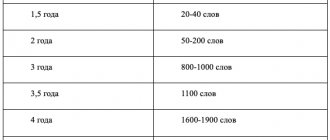An unsuccessfully pronounced phrase can cause conflict in the family, at work, in friendship, and also when talking with a stranger. Therefore, a considerable amount of literature has been written on the topic of communications between people. However, before we learn how to express ourselves correctly, let's look at how to improve your vocabulary. After all, it is impossible to build sentences and formulate thoughts if there are no basic building blocks, which are words. Because it is from words that people construct sentences.
If you think that your vocabulary is quite enough to communicate and express your thoughts, most likely you have forgotten that there is no limit to perfection. For a visual example, I will give a few phrases below, think about them.
- I went to the store.
- I rode my bike to the nearest supermarket.
- I went to the nearest store to buy fresh fruit.
Do you see the difference? These are just 3 different answers to the question “where have you been?” And if you are telling a story to someone, you can embellish it by turning on your imagination. For example, “furiously squeezing the gas pedal of my old bicycle, I rushed headlong to the nearest supermarket to supplement my daily diet with fresh fruit, and on the way...” And so you can compose a whole fascinating story. What am I getting at? If the storyteller has a rich vocabulary (aka vocabulary) and great imagination, then he can tell a story for a very long time and fascinatingly. By the time he finishes his story, it may already be night! People whose vocabulary is replete with copious censor words are interesting to listen to. Take, for example, a person who says this: “Well, I just... uh... went to the store to buy these... uh... well, those that eat, well, these... like vitamins... fruits, yeah.” It’s hard to listen to someone like that to the end, and he himself will be surprised if his listeners don’t disperse before he explains himself. So, if I convinced you, then let's move on. Not to the store by bike, no, read on =)
Our vocabulary, like that of any other person, depends on the words that we use every day in our everyday speech. The words we regularly use are the basis of how we communicate with other people. If our vocabulary is rich in words with synonyms, then we can formulate messages more clearly. And not only text ones.
However, there is an opposite popular belief that a person’s rich vocabulary will certainly include complex, rarely used and highly specialized words (it’s not always possible to even read such words; it’s easier to memorize a tongue twister). But knowing complex words does not mean that you need to use them everywhere in order to show off your intelligence. Just the opposite. Using your intelligence and having an extensive vocabulary with a bunch of synonyms, you can choose which words are best to use in a conversation with specific people in order to express your thoughts more clearly or to understand what the interlocutor is talking about. For example, knowing the meaning of medical terms, it will not be difficult to better understand the doctor and, perhaps, he will even decide that you are from the medical field and will be imbued with respect for you.
Expanding a person’s vocabulary is associated by some people with hard mental work. But this is just an illusion that our brain creates. He is lazy by nature and does not like to exert himself. “Why do something if you don’t have to do it?” - that’s exactly what our brain thinks. The most important thing is to get into the habit of expanding your vocabulary every day. The first few days you will want to give up everything, but you need to continue training.
Get rid of parasitic words
Make room for new expressions. Eliminate from your speech “uh-uh”, “well”, “as if”, “that’s the same” and the like, as well as obscene language and clichés. Send them overly meaningful expressions like “really”, “fuck” and “cool”.
The trouble with them is that they can replace a significant part of the vocabulary and make speech poor.
Be aware of unwanted words. Record your own speech on a camera or voice recorder, imagine that you are at an interview or presentation. Reread your social media posts.
Analyze all this and write down the words and expressions that you want to get rid of. Share this list with a friend or colleague, ask him to pull you down every time he hears forbidden language.
Books for vocabulary development
Books are always good because they allow a person to learn a lot of new and interesting things. Reading in itself makes speech more developed and rich, but not all books will be useful for these purposes. There are universally recognized writers, authors of real masterpieces that demonstrate the beauty of the great Russian language (and language in general) as much as possible.
Let's start with the Russian classics, which influenced the formation of Russian speech, as well as morality. Books by the following authors will help to significantly expand your vocabulary:
- A. S. Pushkin. It can be called the basis of Russian literature, because its vocabulary was about 25 thousand words. You can be sure that with the help of his works, poems and fairy tales you will seriously expand your vocabulary.
- M. V. Lomonosov. No less “effective” are the translations, letters and poems of this remarkable man, considered the founder of Russian poetic culture.
- F. M. Dostoevsky. By reading the works of this philosopher and novelist (“The Brothers Karamazov”, “The Idiot”, “Crime and Punishment” and others), you will not only plunge into the depths of the Russian language, but also learn a world of new feelings and experiences.
- N. M. Karamzin. We advise you to pay attention to the books “History of the Russian State” and “Poor Liza.” These alone are enough to enrich your speech with many new words, including barbarisms and neologisms.
Foreign classics are no less capable of influencing the development of speech. In addition, by reading such books, you will be able to get acquainted with the behavioral characteristics of people of different nationalities:
- French authors: Honore de Balzac, Emile Zola, Jules Verne, George Sand and others.
- English authors: William Shakespeare, Arthur Conan Doyle, Oscar Wilde, Daniel Defoe and others.
- American authors: Margaret Mitchell, Mark Twain, Ray Bradbury, Jack London and others.
- Spanish authors: Miguel de Cervantes, Camilo Jose Cela, Eduardo Mendoza, Francisco de Quevedo y Villegas and others.
Next on our list are more specific literature – dictionaries. Studying them, perhaps, even better helps develop speech and vocabulary. Feel free to take any of the listed dictionaries and start reading it:
- “Russian literary pronunciation and stress”, ed. R. I. Avanesova and S. I. Ozhegova.
- “School phraseological dictionary of the Russian language” by V. P. Zhukov in collaboration with A. V. Zhukov, ed. G. V. Karpyuk.
- "Dictionary of Russian proverbs and sayings." V. P. Zhukova.
- “A unique illustrated explanatory dictionary of aphorisms and catchwords for children” by S. N. Zigunenko and A. F. Istomin.
- “Dictionary of synonyms of the Russian language” 3. E. Alexandrova.
- “Spelling Dictionary of the Russian Language” by D. N. Ushakova, S. E. Kryuchkova.
- “School etymological dictionary of the Russian language. Origin of words". N. M. Shansky and T. A. Bobrova.
- "Dictionary of antonyms of the Russian language." M. R. Lvova.
And several explanatory dictionaries:
- Explanatory dictionary of S. I. Ozhegov.
- Explanatory dictionary of the living Great Russian language by V. Dahl.
- Russian explanatory dictionary by V. V. Lopatin.
- Explanatory dictionary by T. F. Efremova.
- Explanatory dictionary by D. N. Ushakov.
- Explanatory dictionary by A. P. Evgenieva.
And finally, if you want to give yourself a real intensive training in speech development and speech skills, but also have an interesting time, turn to very informative specialized works:
- "A word about words." Lev Uspensky.
- “Do we know Russian?” Maria Aksenova.
- "Alive as life." Korney Chukovsky.
- “The Russian language is on the verge of a nervous breakdown.” Maxim Krongauz.
- "Russian with a dictionary." Irina Levontina.
- "From Adam's apple to the apple of discord." Vadim Khrappa.
- "The Word is Living and Dead." Nora Gal.
- "The oddities of our language." Nigel Brown.
- “How to talk to anyone, anytime, anywhere.” Larry King.
And in conclusion, a few words about how to quickly memorize new words from books. This is best done in a playful and creative way:
- Solve themed crossword puzzles dedicated to specific works.
- Answer the questions after reading the books. They can be found on the Internet, and answers are best given in writing.
- Write notes of your favorite works, imitating the authors. This way you will develop speech, literacy and memory.
- Keep a diary where you will write down words that interest you and that you like. Don't forget to include their definitions there as well.
- Try yourself in writing. On the weekend, spend a couple of hours writing a short story or essay on a free topic.
Communicate with people, read books, study dictionaries and encyclopedias, write down new words in a diary, notepad or on stickers - all these are components of the development of speech and vocabulary. If you want to expand your child’s vocabulary, read aloud to him, look at and describe wimmel books, play board and active games, make words from cubes and magnets and explain their meaning, support his curiosity and interest in the world around him.
Active and conscious actions are a prerequisite and guarantee of vocabulary development. Human speech can be compared to a muscle that requires constant training to grow and strengthen. Try to always keep it in working order, without skipping or ignoring new words, learning, clarifying and remembering their meanings. And the most important thing, of course, is the use of new words in your everyday speech.
To complete the picture, we suggest you take a break from reading for a while and watch a video with the participation of rhetoric teacher Anna Komlevskaya, in which she shares useful tips on developing vocabulary and speech. We wish you success and thousands of new words!
YOUTUBE How to expand your vocabulary
We also recommend reading:
- Storytelling
- Why you need to improve your vocabulary
- Development of speech culture
- Tips for Improving Non-Fiction Writing
- How to develop eloquence: some tips
- Parasitic words and how to get rid of them
- How to transfer vocabulary from passive vocabulary to active?
- Strategies for enriching your vocabulary
- Russian for adults: 10 ways to close literacy gaps
- Learning a foreign language: old rules about the main thing
- How to learn better what you read
Key words:1Russian
Connect with people different from you
Your usual social circle is constantly “cooking” in the same vocabulary, because you have the same interests and topics for discussion. You've probably noticed that when someone in your company finds another job or meets new people, their speech changes. He sprinkles unusual words, jokes, and even the manner of conversation can become completely different.
Every new person changes you. Therefore, strive to constantly expand your circle of acquaintances. Chat at the gym, in the store, attend more events and find people to talk to on the Internet. Don't push away those who are different from you.
Scanwords and crosswords
There is a common opinion about the uselessness of scanwords: they are only suitable for security guards in supermarkets.
In fact, scanwords and crosswords allow you to learn a lot of new words, often unusual ones, and, at the same time, understand their meaning. A simple newspaper or smartphone app will help improve your analytical skills and expand your vocabulary arsenal.
Write
Start a personal diary or blog on social networks. Write down your thoughts and events every day in great detail. Write about your goals and desires, come up with stories and stories. When communicating with friends, avoid jagged messages and do not use emojis instead of words.
First, writing is a great way to apply and reinforce what you've learned. Secondly, if you write by hand, this will help The Pen Is Mightier Than the Keyboard: Advantages of Longhand Over Laptop Note Taking remember new words even better.
Sign of education
The problem of expanding active vocabulary arises more often when learning a foreign language than when using a native one. Conducting a conversation in English, Italian or Chinese, we periodically find ourselves in a situation where we don’t know a specific word, we can’t find a synonym for it, and even in a roundabout way, through descriptions, comparisons and associations, we’re unable to express a thought - which means we have to grasp for the dictionary. It’s easier with our native language: if the required lexical unit doesn’t come to mind, we will always find a way to get out by finding a more or less exact equivalent for it.
We think about increasing vocabulary within our native language if we need to impress the audience or want to impress our interlocutor with eloquence - that is, when emotions come into play. An extensive vocabulary is an indicator of education and helps to raise self-esteem, and for journalists, copywriters and translators it is also a tool for earning money. Strategically, masterful command of words helps us express our thoughts, emotions and attitudes to life situations as accurately as possible and build effective communication.
The traditional list of recommendations for expanding your vocabulary is two or three clicks away from us and wanders from blog to blog, from year to year with minimal changes. There is some truth in this list, but some advice already does not correlate well with the realities of today's life and with the modern way of thinking, communicating and acquiring knowledge. And others seemed suspicious from the very beginning, but nevertheless continue to be presented as effective recipes. We will criticize typical advice later, but right now we’ll talk about something relevant.
Use cards
If you can’t remember a very complex and interesting word, use the flash card method. Many people have been familiar with this method since school.
On one side of the card you write the word, on the other - its meaning. First you need to try to remember the answer yourself, and then turn the element over and test yourself.
This method is very simple and effective: the memorization process begins with preparation. Therefore, it is better not to use applications, but to create cards yourself and write on them by hand. And you can take a small stack with you anywhere.
Be interested in other people's speech
Different age, gender, national, and social groups use words that are unique to them.
These could be professionalisms at work, colloquialisms of the older generation, buzzwords of young people. The characteristics and expressiveness of speech often determine a person’s character, his habits, knowledge, and experience.
In any case, we are constantly spinning in a whirlpool of familiar and unfamiliar words, filled with meaning and empty. Another person's speech can be a great way to increase your vocabulary. Our social nature allows us to exchange useful things, including words or phrases.
Exercise
- Make sentences where each word begins with the next letter of the alphabet. For example: “The stork was a magnificent accordion player. Even the raccoons howled pitifully and nodded their curious faces, enjoying the charming songs. That skill became fatal, fatal. The gloomy heron ambitiously threw poison at the puny, selfish youth.”
- Make up stories from words belonging to one part of speech. Describe your morning using only nouns. “Ring, wake up, alarm clock, turn off. Getting up, searching, clothes. Approach, window, opening, freshness. Cheerfulness, spirituality, joy." Using the same principle, compose stories with only verbs, adjectives or participles. This activity seems simple only at first: if you set out to add more and more details, you will have to learn to carefully select words and pull them out of the passive vocabulary.
- Make tautograms. This is the name for sentences whose words all begin with the same letter. Here is an example from the work “Olgin Island” by Nikolai Kultyapov: “Onufry’s father, Osip Ostromirovich Ordynsky, graduated from Oxford full-time. He definitely refused to stay away from the Fatherland and went back. The possessed Ordynsky announced a survey of individual districts, regions, and vast outskirts.”
- Choose synonyms and antonyms for words. This exercise can be done anywhere and anytime. If you're bored in line or at lunch, come up with a synonym for the word. For example, “beautiful” is picturesque, wonderful, gratifying, wonderful, and so on. Do the same with antonyms.
Useful exercises
Advice is, of course, good. But most recommendations are forgotten almost immediately after reading. So let's add some practical exercises to our vocabulary building program.
I warn you right away that they are very similar to school assignments in Russian language and literature. With one difference: you will not have any strict boundaries or restrictions. It is important for us to develop the skill of using words.
And don’t forget an important rule: progress in vocabulary development depends on the quality and regularity of the exercises, as well as on your personal responsibility.
Presentation
You watched a movie, read a book, listened to a song - please write a brief retelling on paper. Write how you understood the main idea, express your attitude to the issue. Try to write emotionally and comprehensively, do not limit yourself to a couple of lines.
Composition
Now try to compose something of your own. It is not at all necessary to squeeze out of yourself something highly artistic and complex, especially since you are unlikely to succeed anyway. You can remember an interesting incident from your life and put it on paper. If you have children, you can make up fairy tales for them.
No one will criticize you or grade you, so relax. Write to your heart's content.
Retelling
An exercise similar to presentation, but you only need to retell it orally. Choose a “victim” who will obediently listen to you for at least 10 minutes, and tell her the contents of something. Yes, at least our article! Let him also enrich his vocabulary.
If you are very shy, a reflection in the mirror, your favorite cat, or a toy phone will do.
Selection of synonyms
Pick up a dictionary, open it to a random page and point at the first word you come across. Now try to come up with as many synonyms for it as possible.
When your imagination completely runs out, take a look at a service that selects synonyms online. Assess your abilities and mark the words you didn’t remember.
Chains of words
In order for new words to be remembered better, you need to integrate them into the structure that already exists in your brain. I'll explain how it works.
For example, you learned today that the word “ivory” means the color of ivory. To remember it, you can make the following chain of words: white, milky, ivory, beige, yellow. Now the brain knows where to place the new word.
One letter
Make sentences in which all words begin with the same letter. For example: “Vasya won a bicycle in a virtual quiz.” Suggestions must be meaningful. The longer they turn out, the better.
Cognates
Take the first word you come across from the dictionary and select as many words with the same root as possible. You can use any part of speech.
For example, the word “running”. Similar roots to it: run, run away, run through, jog, escape, fugitive, defector, etc.
Role reversal
Learn to speak and write in different styles: business, artistic, scientific, youth. This will enrich your vocabulary and make your speech livelier and more flexible. To make the process fun, I suggest playing a little.
Every day, choose a role for yourself and try to get used to it as much as possible. For example, today you are a lawyer, Eugene, who is writing a letter to his friend to discuss the latest world news. And tomorrow - literary critic Eduard, writing a review of “Dead Souls”. Come up with roles yourself, improvise, experiment. This exercise is also great for developing creativity.











